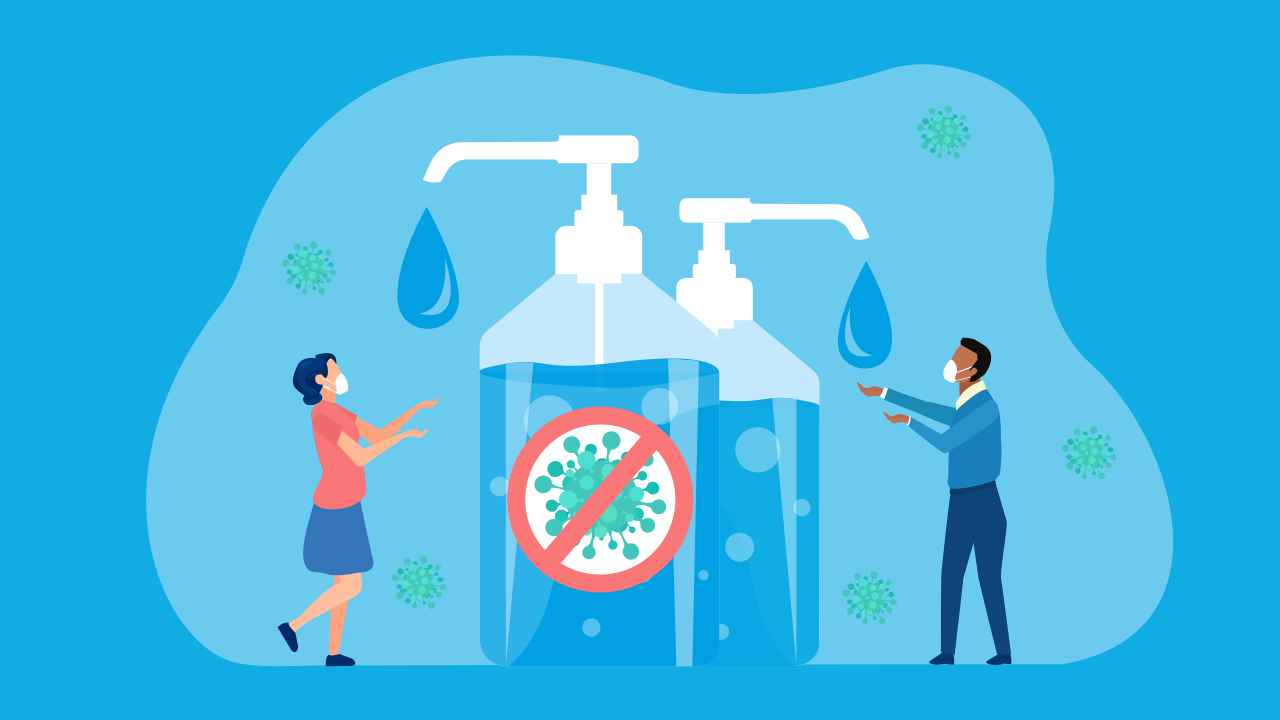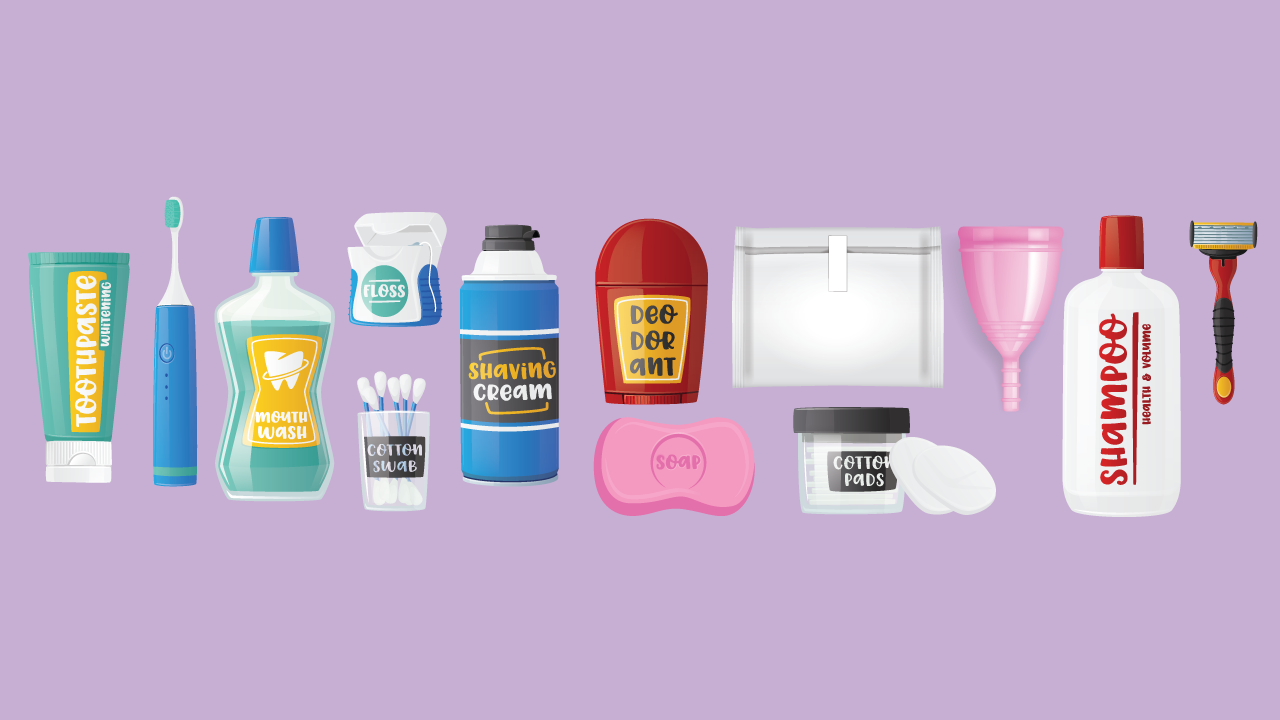
Undergarment Hygiene: Healthy Practices to Follow

It’s not enough to have a wardrobe of pretty underwear. Maintaining underwear hygiene is paramount if you want to keep vaginal infections at bay. So, here’s a complete guide that may come in handy.
Recommendations for ensuring underwear hygiene
Here are a few tips that you may follow to maintain high-quality underwear-related hygiene:
1. Opt for natural fabrics
When it comes to choosing underwear, cotton is the best fabric. It is delicate, breathable, and a good absorbent. The vulva is sensitive and delicate, and cotton does not cause friction and skin irritation. It also absorbs vaginal discharge and extra moisture, preventing bacterial and fungal infections.
Conversely, synthetic materials like nylon and spandex may look cool and pretty, but they trap moisture and heat, making your intimate area the perfect breeding ground for microbes.
2. Wear the right size
There is no compelling link between wearing tight undergarments and urinary tract infections (UTIs). However, wearing tight underclothes may increase the risk of UTIs. Such undergarments trap and hold moisture and heat, giving microbes an environment to thrive in. Additionally, tight undergarments may cause chafing. You can choose the right size by measuring the broadest part of your hip. You may place the measuring tape around it to get a clear idea.
3. Change every day
Vaginal discharge and sweat collect in the undergarment, making it a perfect environment for microbial growth. You can resolve this issue by opting for panty liners, as they absorb vaginal discharge, moisture, and light menstrual flow. However, if you are someone who feels uncomfortable wearing panty liners, you can wear cotton fabric undergarments and change them every day. If needed, you can even change them more than once a day.
How to wash your undergarments
You need to handle your undergarments with utmost care because they come in contact with sensitive vaginal skin for long periods. You can wash your undergarments by hand or washing machine depending on your choice and convenience.
According to the National Health Services, undergarments can be washed at 60°C to get rid of germs. You can opt for hypoallergenic soap to wash them because the chemicals in general detergents may lead to vulvar irritation, itching, or allergies.
Be extra careful of dyes and fragrances because they can act as potential allergens or irritants
Although not necessary, try washing them separately from the rest of your wardrobe. Since undergarments cling to your sensitive area for longer periods, it is suggested to wash them separately to avoid the transfer of bacteria from other clothes to them.
Should you wear underwear at night?
Whether to go underwear-free at night or not is an ongoing debate. For women who have a healthy vagina, it can be a personal choice. However, for those who are susceptible to infections, it is recommended to skip the undergarment at bedtime to prevent moisture build-up.
Do you need to wear underwear while exercising?
If your workout shorts have inbuilt moisture-absorbing underwear, then you can skip wearing a separate one. However, wearing an extra layer of fabric would be more comfortable, as it would absorb moisture better. Opt for well-fitted underwear to avoid chafing.
Do thongs cause infections?
In a research conducted by Sahlgrenska University, it was concluded that thongs have no effect on the pH, microbes, and moisture content of the vagina. Neither does wearing thongs contribute to bacterial vaginosis, UTIs, and yeast infections. Instead, these infections were a result of douching, and poor vaginal and sexual hygiene.
When should you buy new underwear?
Did you know that even clean underwear can harbor about 10,000 living bacteria? So, consider purchasing new underwear at least once a year, especially if you are susceptible to infections.
What is period underwear?
Period underwear has an inbuilt absorbent material that is capable of soaking period blood and keeping you moisture-free.
The best method to keep them clean is by washing them right after use every day. You may rinse off the blood under running water and then either wash it with a mild detergent by hand or put it in the washing machine. Never use bleach or fabric softeners on these underclothes. Also, do not add them to the dryer. Follow the instructions given by the manufacturer.
When buying undergarments, your choice may be largely determined by the style and look. But more importantly, it is imperative that you select the right undergarment to avoid any irritation, allergies, or chafing in your intimate regions. Change and wash them daily, and buy new ones yearly. A little effort goes a long way to keep your vagina happy and healthy.
References
1. Rekstis E. 8 Underwear Rules To Live By For A Healthy Vagina. Healthline. https://www.healthline.com/health/womens-Health/Underwear-Hygiene (accessed May 17, 2021).
2. Pridgett T. Your Underwear Could Be Contributing To Vaginal Infections – Here’s How You Can Fix It. Popsugar. https://www.Popsugar.Com.Au/Fitness/Best-Underwear-For-Vagina-Health-47538878/ (accessed May 17, 2021).
3. Why The Type Of Underwear You Wear Matters to Your Vagina. Self. https://www.self.com/story/why-underwear-choice-matters-for-a-healthy-vagina (accessed May 17, 2021).
4. Runeman B, Rybo G, Forsgren-Brusk U, Larkö O, Larsson P, Faergemann J. The vulvar skin microenvironment: impact of tight-fitting underwear on microclimate, pH and microflora. Acta Derm Venereol 2005; 85: 118–22.
5. Klebanoff MA, Nansel TR, Brotman RM, et al. Personal hygienic behaviors and bacterial vaginosis. Sex Transm Dis 2010; 37: 94–9.
6. Gallagher G. Should I Wear Tight Underwear? Healthline. https://www.healthline.com/health/tight-underwear (accessed May 18, 2021).
7. How To Measure Panty Size & Chart. Enamor. https://www.enamor.co.in/panty-size-calculator-chart (accessed May 18, 2021).
8. Period underwear 101: Answering your most common questions. Grove. https://www.grove.co/blog/period-underwear-guide (accessed May 25, 2021).
9. How to Care for Period Underwear. Hurraykimmay. https://hurraykimmay.com/2020/09/15/how-to-care-for-period-underwear/ (accessed May 25, 2021).
10. Farage M, Bramante M, Otaka Y, Sobel J. Do panty liners promote vulvovaginal candidiasis or urinary tract infections? A review of the scientific evidence. Eur J Obstet Gynecol Reprod Biol 2007; 132:8–19.
11. How to prevent germs from spreading. NHS. https://www.nhs.uk/live-well/healthy-body/how-to-prevent-germs-from-spreading/ (accessed June 2, 2021).













